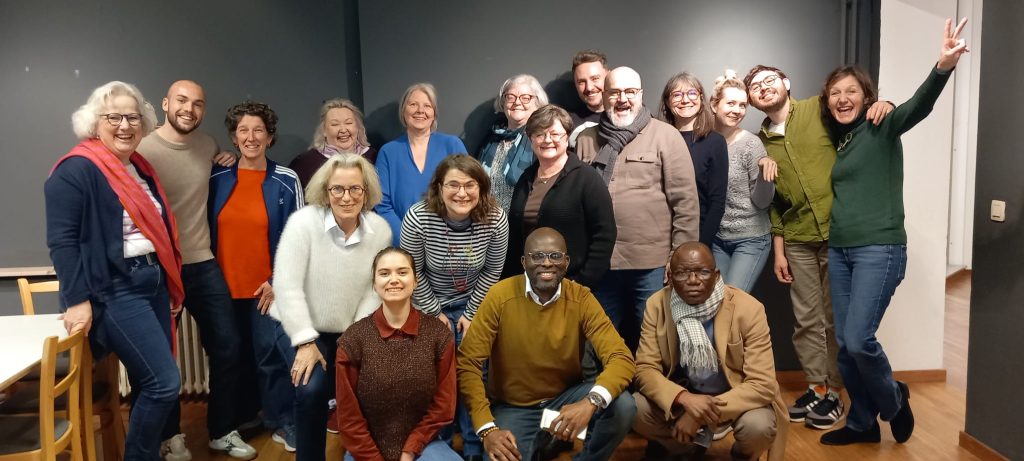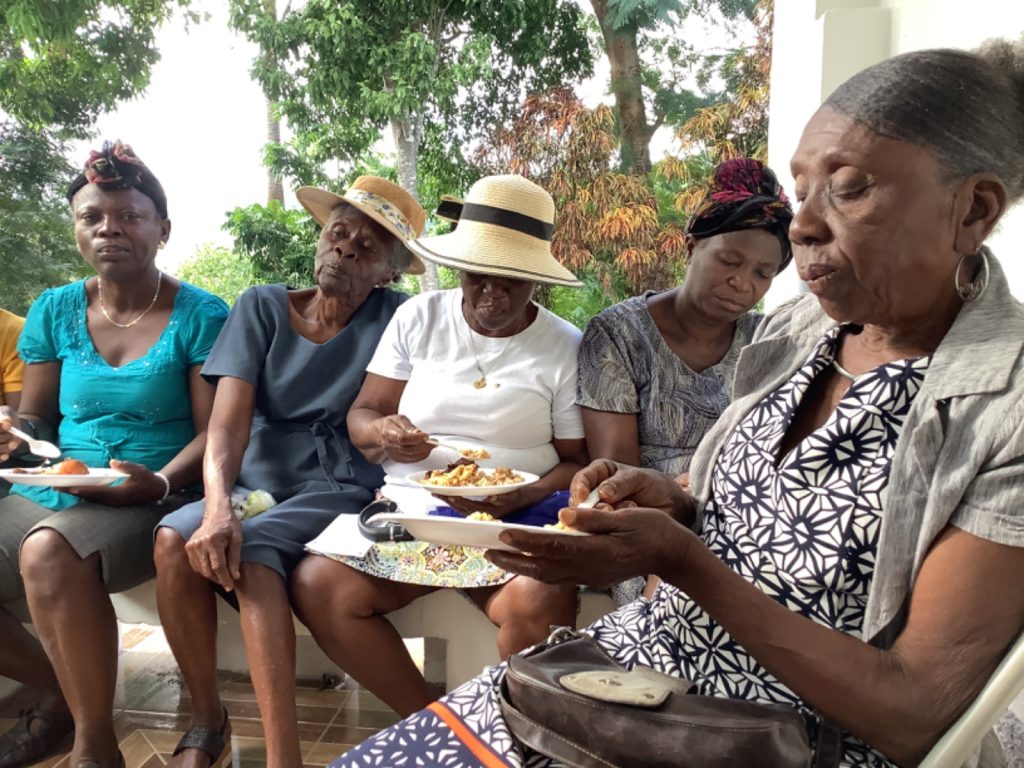The organizations which belongs to the International Federation of Petits Frères des Pauvres are committed to breaking the solitude of the elderly and stay by their side until the end of their lives, wherever they live. This can be in their private home, in a nursing home, in the hospital, but also, we think less often of it, in prison. Indeed, elderly prisoners are greatly affected by loneliness in prison: locked up, limited in their contacts with the outside world, with few activities… They suffer a double penalty.
This is why the French organization of the Petits Frères des Pauvres started to visit older adults in the prison environment in 2012 , especially those in prison hospitals.
“In addition to the isolation linked to the place of confinement, there is the rupture of family and social ties, financial problems, the loss of a job, housing … and if in addition the detainees are old, sick sometimes with a “vital prognosis”, they must bear a multitude of penalties,” explains Anne Legge, coordinator within the organization.
For the organization, it is essential to support these prisoners until the end of their lives. As the volunteers testify, they are there to provide a neutral listening ear: “During these unusual meetings it is essential to see the person for what he or she is in his or her humanity without judging his or her criminal act. We go towards “someone other than oneself”, that is to say, a woman or a man whatever the mistakes committed. Beyond the crime or misdemeanor committed, the encounter is above all an inter-human encounter”, explains Anne Legge, coordinator of the team visiting sick people and those at the end of their lives, which works in the prison environment in Paris.
The visits of the volunteers are a breath of fresh air for the inmates who are often very lonely, a way to find an attentive ear and a comfort in their daily life.
In the United States, the LBFE team in Cincinnati also had the opportunity to visit an inmate for several years until the end of his life. Indeed, Yogi Wess, the organization’s leader, had a strong relationship with Mr. Gay, nicknamed “Grandpa Gay” at the Ohio Geriatric Prison. Monthly visits with Mr. Gay quickly turned into a real friendship, a friendship that soon extended to Yogi’s family, who also began visiting the elder.
“Our visits were always lively and Mr. Gay prepared for them with great care – always clean-shaven, a freshly pressed uniform, always smiling as he entered the visitation room and ready to enjoy the hamburgers, granola bars, and powdered doughnuts he bought from the vending machines. Mr. Gay loved to play cards, talk about sports, the latest technology, was always curious and interested in LBFE, what Lucy was studying at school, and worried about whether our dog Bojangles was doing well. He was always positive.” Yogi Wess
In the memorial written and read by Yogi Wess at Mr. Gay’s funeral, she portrays an inmate indeed, but also a man, with dreams and desires.
“His dream was a life where he had his own room, where he could turn off the lights and sleep in the dark and quiet, where he would have a closet full of suits from a gentlemen’s store and a church to wear those suits in, which would be St. Clare’s Church. He dreamed of going bowling with Lucy and her friends, deciding what he wanted to eat, cooking, going to New York to attend a jazz festival or to New Orleans during Mardi Gras.”
Until his death in 2017, Yogi Wess and her family visited this man who was imprisoned for life, who had not known freedom since 1975 and never found it.
The accompaniment of elderly detainees and sick people remains underdeveloped and rather unknown but is nevertheless essential to break the loneliness and isolation they suffer in prison; they should not be left out.
Are you interested in this subject? Find an article dedicated to volunteers who accompany prisoners at the end of their lives in the prison environment https://www.petitsfreresdespauvres.fr/informer/nos-actualites/ces-benevoles-qui-apportent-du-reconfort-aux-detenus-malades as well as an article dedicated to preconceived ideas about elderly people in prison in France https://www.petitsfreresdespauvres.fr/informer/nos-actualites/7-idees-recues-sur-les-personnes-agees-en-prison
Photo credit : LBFE Cincinnati







